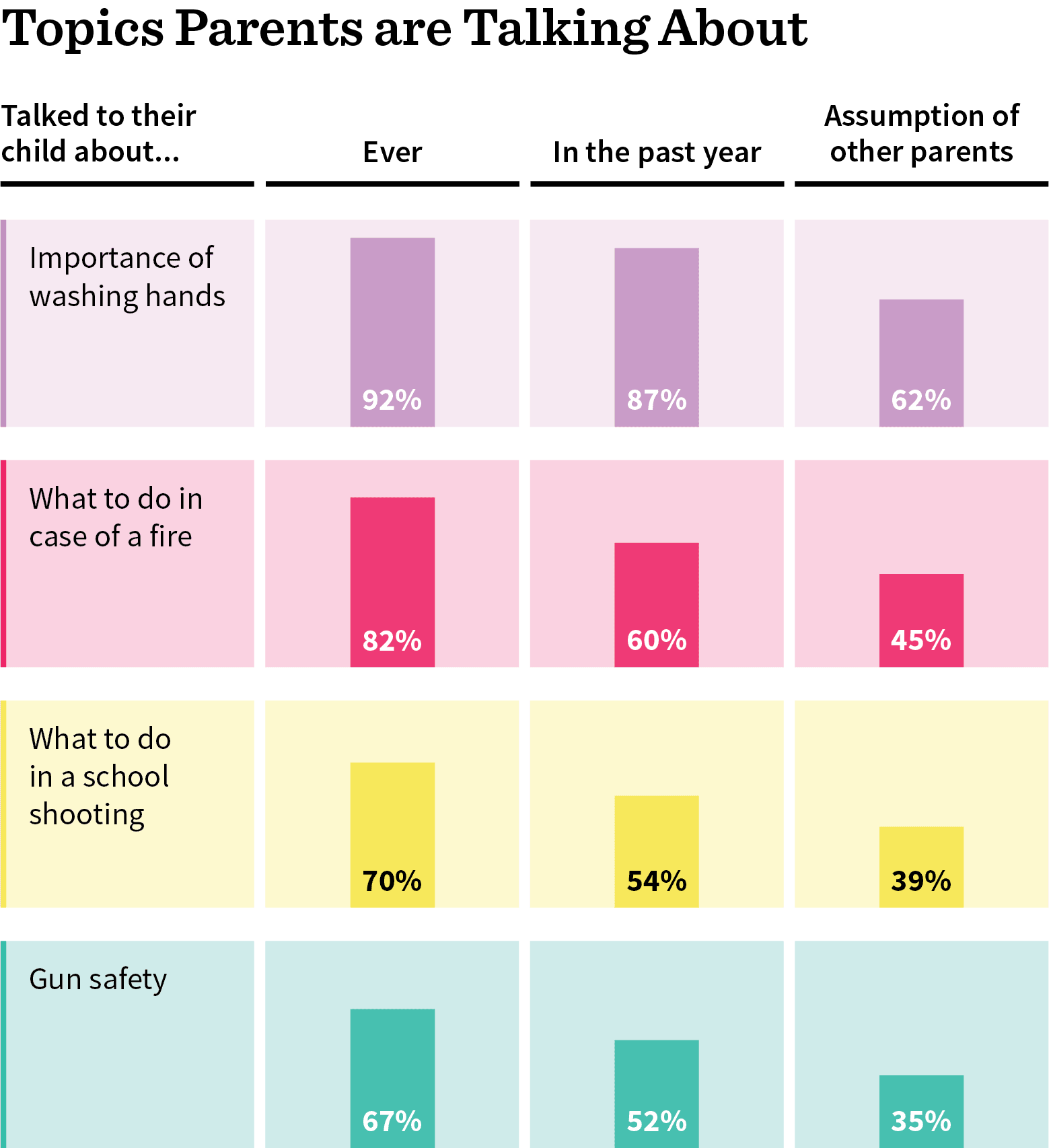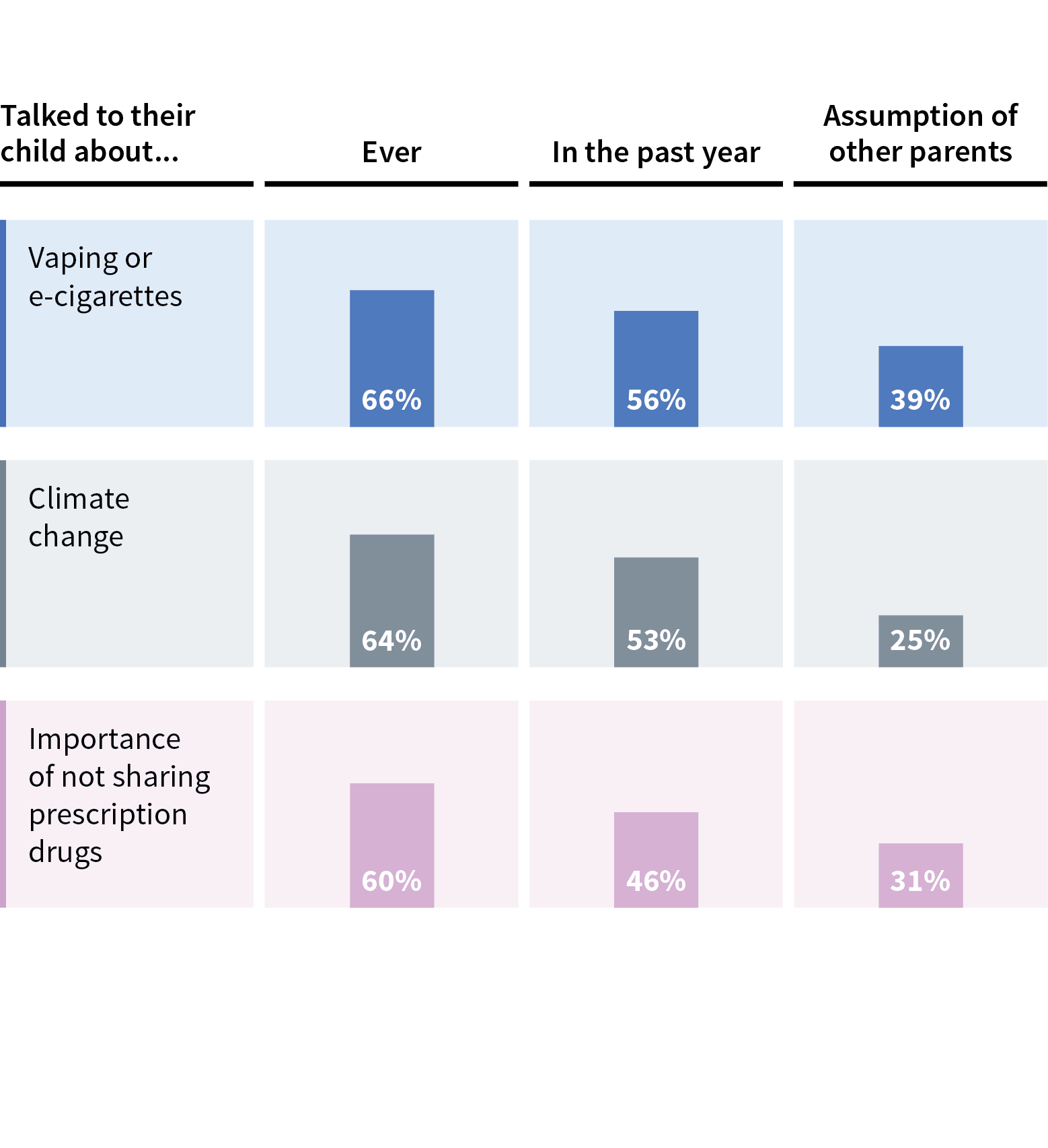With our IPREX partner Marketing for Change, we recently produced a survey of 1,519 parents from across the United States about their behaviors during the pandemic. The study provides a statistical portrait of how families are coping. You can see the major results here.
We also posed broader questions about parents’ substance use and the conversations they have with children around alcohol, cannabis, vaping and opioids beyond the pandemic. We’ve done a lot of work in these areas through our Starts with One campaign, and work around driving under with influence with the Washington Traffic Safety Commission.
The big finding
Overall, we found that the majority of parents are having conversations with their kids about tough issues, from drugs to gun safety. The caveat – parents don’t think other parents are having these conversations too. And despite a nationwide opioid epidemic, prescription drugs were the least discussed by parents compared to other issues surveyed. Income level also came into play, with lower income parents reporting the least amount of alcohol and marijuana use, and higher income parents reporting significantly more alcohol and marijuana use.
Let’s get into the data!
Most parents are talking to their kids about tough issues.
- 60% of parents talked to their children about prescription drugs in the past year, while 66% of parents talked to their children about vaping.
- Discussions about drugs were driven by parents, not children, with only 22% of parents reporting that their children had asked them about drugs.
- Fathers were more likely to initiate this conversation and be asked by their children about drugs.
- Despite 2/3 of parents having a conversation with their children, less than 1/3 (31%) of parents think that most other parents have also had a conversation with their children.

When it comes to alcohol, parents think other parents are drinking more often than they actually are.
- Only 31% of parents report drinking alcohol on the weekends all or most of the time.
- However, 55% of parents think most other parents drink on the weekends.
- Parents with an income over $75,000 were more likely to report drinking alcohol on the weekends (36-41%) compared to parents with incomes under $50,000 (15-18%).
- 21% of parents report using cannabis products with or without a doctor’s prescription.
- Unlike alcohol, only 28% of parents think most other parents do this.
- Parents with higher incomes were also more likely to report using cannabis products in their home (29%) compared to parents with incomes under $50,000 (15%).

Vaping is on parents’ radar, and that’s leading to conversations with their kids.
- 72% of parents of teens reported talking to their kids about vaping or e-cigarettes in the past year.
- 54% of parents thought other parents talked to their kids about vaping or e-cigarettes.
- Older parents (45+) were more likely to have discussed vaping or e-cigarettes with their kids.
- Parents with incomes under $25,000 were also more likely to discuss vaping with their kids.

Despite a nationwide opioid epidemic, we still have a ways to go to bring this issue to the forefront.
- Out of all of this issues in the survey, opioids were the least talked about, below climate change and what to do in case of a fire.
- 45% of parents report locking up medications, and 40% think other parents do this as well.
- Locking up medications was more prevalent with those with younger children compared to teenagers. This suggests that locking up medications to keep them out of the reach of children is a more compelling motivator than locking up medication to prevent it from being misused by older children or adults.



Let us know if you’d like to connect to talk through any of the findings, we’re happy to talk strategy and what it means for your campaign. For the full IPREX Parent Normal Survey results, visit blog.funeasypopular.com/iprex-parent-normal-survey-topline-summary.

